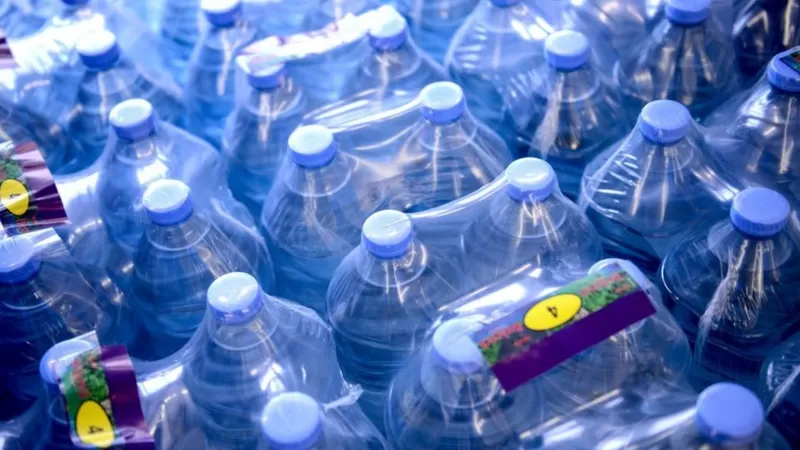Environmental campaigner Hemantha Withanage is adamant that the purchase of plastic-bottled water should be discouraged.Bottled water booming despite worries over waste.
“Damage from plastics is irreversible,” the chair of Friends of the Earth International tells sources.
“Once fragmented into microplastics, it pollutes all of the ecosystem including the oceans and the air we breathe, with no way to recover them.”
The bottled water industry raises strong emotions from its opponents, who like Mr Withanage point to the environmental impact of all the waste plastic.
And, with only 2.3% of bottled water coming in glass bottles, there is a lot of plastic. Bottled water booming despite worries over waste.
In the US alone, 50 billion plastic water bottles are purchased every year, according to one report. The study adds that only 9% of plastic bottles sold globally are currently recycled.
The industry counters that today’s bottles, made from polyethylene terephthalate (PET), are 100% recyclable. And increasingly they are made from already recycled PET in the first place.
Others point to bottled water being healthier than sugary soft drinks. And then there were the recent scandals about contaminated tap water in the US.
What is certain is that the global bottled water sector continues to boom. The industry is expected to enjoy revenues of $324.4bn (£266bn) this year. And that number is tipped to jump to $419.9bn by 2029.
This growth is being led by sparkling water, sales of which are more than doubling.
Simon Oldham, joint managing director of Scottish bottled water brand Highland Spring, confirms the increased demand for the fizzy version.
“During the pandemic, sparkling water in particular saw strong growth, as consumers sought out low/no alcohol drinks that kept them hydrated and offered versatility,” he says.
Mr Oldham adds that the overall increase in sales of bottled water “has been driven by an increased health and wellbeing awareness… with consumers seeking healthy choices and alternatives to both sugary soft drinks and alcoholic beverages”.
Jill Culora, vice president of communications for the US-based International Bottled Water Association, says that for many people bottled water is a health necessity.
“For many economically developing countries, bottled water serves as a partial solution when safe drinking water is not available,” she says. “Many countries have not built the necessary public water distribution systems. For those countries, bottled water is often their only source of safe water.
“Bottled water is also available in times of emergencies and natural disasters because the bottled water market is strong and viable throughout the year. Sometimes, water from tap water systems can be compromised after emergency situations or natural disasters.”
But in the developed world, what is wrong with tap water for the vast majority of people? “Nothing,” says water expert Cristina Villanueva.
British Gas owner Centrica sees profits soar as energy bills rise
